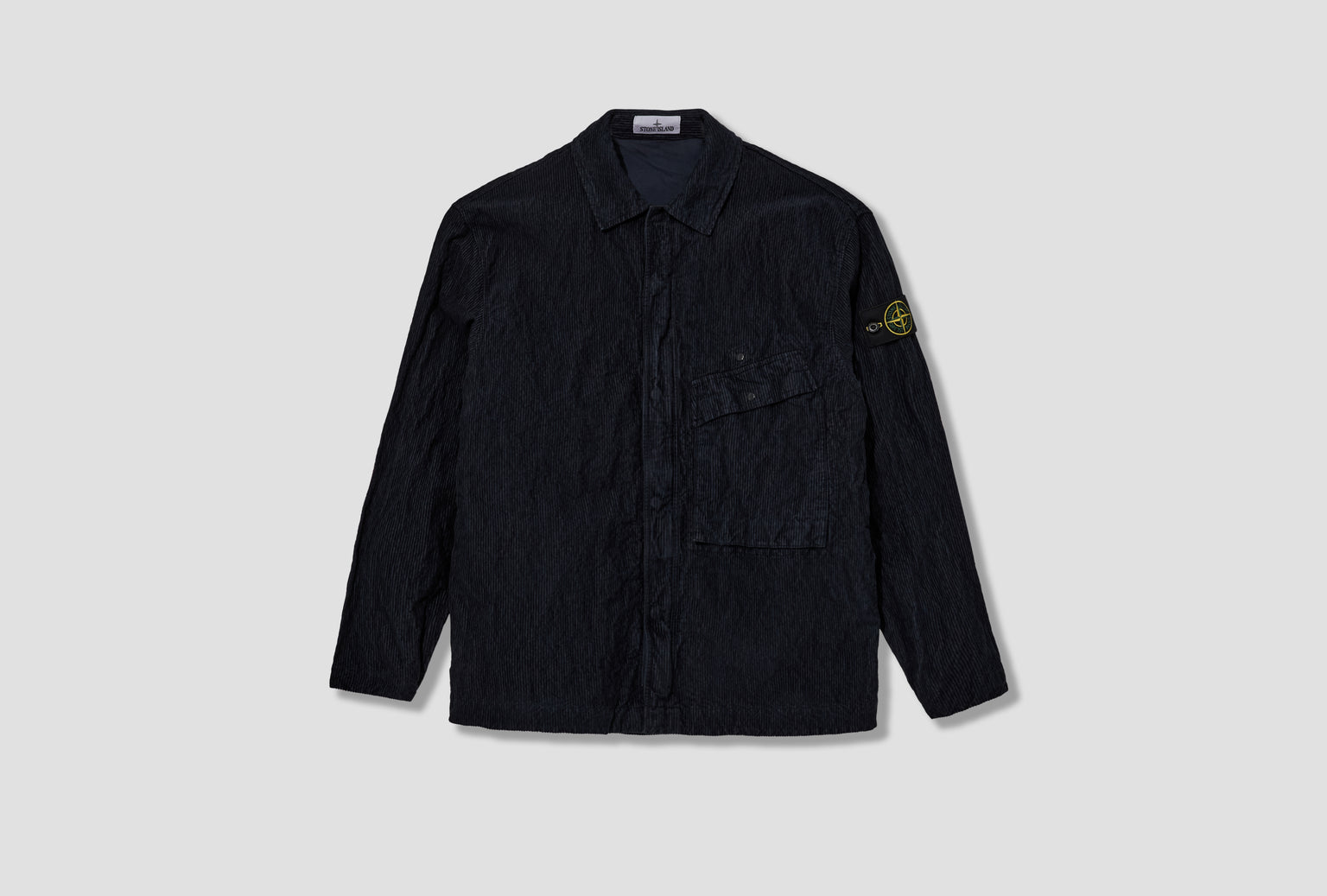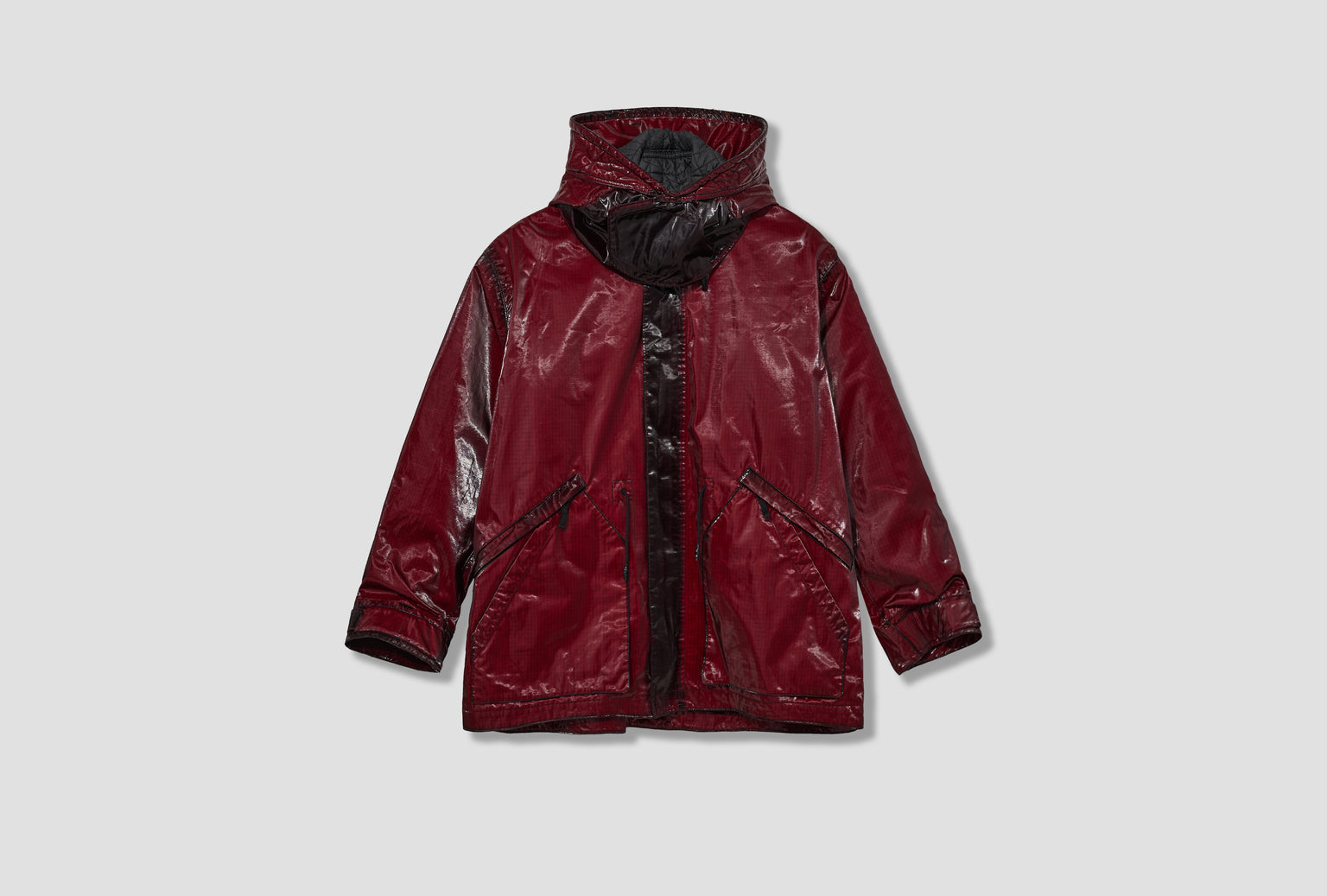
A Chronicle of Stone Island: Innovation, Identity, and Icon Status
Stone Island is one of the most influential and technically advanced brands in the world of menswear. Founded in Italy in the early 1980s, it has become synonymous with textile experimentation, forward-thinking design, and a subcultural presence that spans football terraces, streetwear forums, and luxury boutiques alike. Few brands command such a passionate following across so many seemingly disparate worlds.
Founding and Carlo Rivetti’s Vision
Stone Island was founded in 1982 by Massimo Osti, a graphic designer turned garment engineer who had already made waves with his first brand, C.P. Company. Osti was fascinated with military uniforms and workwear, particularly how function dictated form.
The very first Stone Island piece—a jacket made from Tela Stella, a heavy, double-dyed, truck tarpaulin-like fabric—set the tone. It was stiff, garment-dyed, and unlike anything else. When the fabric didn’t fit the C.P. Company aesthetic, Osti decided to launch a new label just to explore its potential: thus, Stone Island was born.
Shortly after its inception, Osti passed control to Carlo Rivetti, whose family was already involved in the Italian textile industry. Under Rivetti’s guidance, Stone Island evolved into a research-driven powerhouse, doubling down on innovation and exclusivity.
Stone Island became a status symbol in UK football culture during the 1990s and early 2000s. British "casuals"—football fans known for their stylish, often high-end clothing—adopted the brand for its exclusivity, quality, and intimidating look. Wearing Stone Island wasn’t just about fashion; it was about identity, tribe, and territory.
This association gave Stone Island an underground edge. It wasn’t just another luxury brand—it was a badge of street credibility. The popularity among football fans would later evolve into broader influence across UK grime and drill scenes, as well as among streetwear fans globally.
Textile Innovation as Identity
Stone Island's identity is rooted in fabric innovation. The brand operates like a fashion laboratory, constantly researching and developing new materials and treatments. Notable innovations include:
- Reflective and heat-sensitive materials
- Garment-dyeing techniques never seen before in outerwear
- Nylon Metal – a high-shine, iridescent fabric with a futuristic finish
- Ice Jacket – which changes color in response to temperature
Stone Island garments are often identifiable by their rich textures, complex dye jobs, and high-performance construction. The iconic compass badge, buttoned onto the left arm, signifies the brand’s "marina militare" influence and its quest for exploration—both physical and conceptual.
Mainstream Resurgence and High-Fashion Crossovers
The 2010s saw a major resurgence in Stone Island’s relevance. Key to this was its embrace by the global streetwear community, including major cosigns from artists like Drake, Travis Scott, and A$AP Rocky. In 2017, Stone Island even collaborated with Supreme, cementing its crossover into global hype culture.
Meanwhile, Stone Island’s design credibility remained untouched. The brand continued to release cutting-edge collections under the creative direction of Carlo Rivetti and later Robert Triefus, maintaining a reputation for both function and flair.
Acquisition by Moncler and the Future
In 2020, Stone Island was acquired by Moncler Group, a move that surprised many but ultimately aligned with the brand’s ambition to grow while maintaining its core values. Moncler’s resources offered new opportunities for global expansion while allowing Stone Island to retain its autonomy and innovation-led philosophy.
Since then, the brand has expanded its product range, invested in sustainability initiatives, and launched elevated capsule lines like Stone Island Shadow Project (developed in collaboration with Acronym's Errolson Hugh), pushing the boundaries between techwear and avant-garde fashion.
Conclusion
Stone Island represents the rare fusion of technical mastery, cultural authenticity, and enduring cool. What began as a side project rooted in fabric experimentation became a global fashion icon. Whether worn on the shoulders of football fans, streetwear obsessives, or high-fashion tastemakers, the compass badge remains a symbol of innovation, utility, and rebellion.
Through constant evolution and a refusal to compromise on quality or experimentation, Stone Island has proven that true style doesn’t chase trends—it forges its own path.
Explore our full selection of STONE ISLAND here










